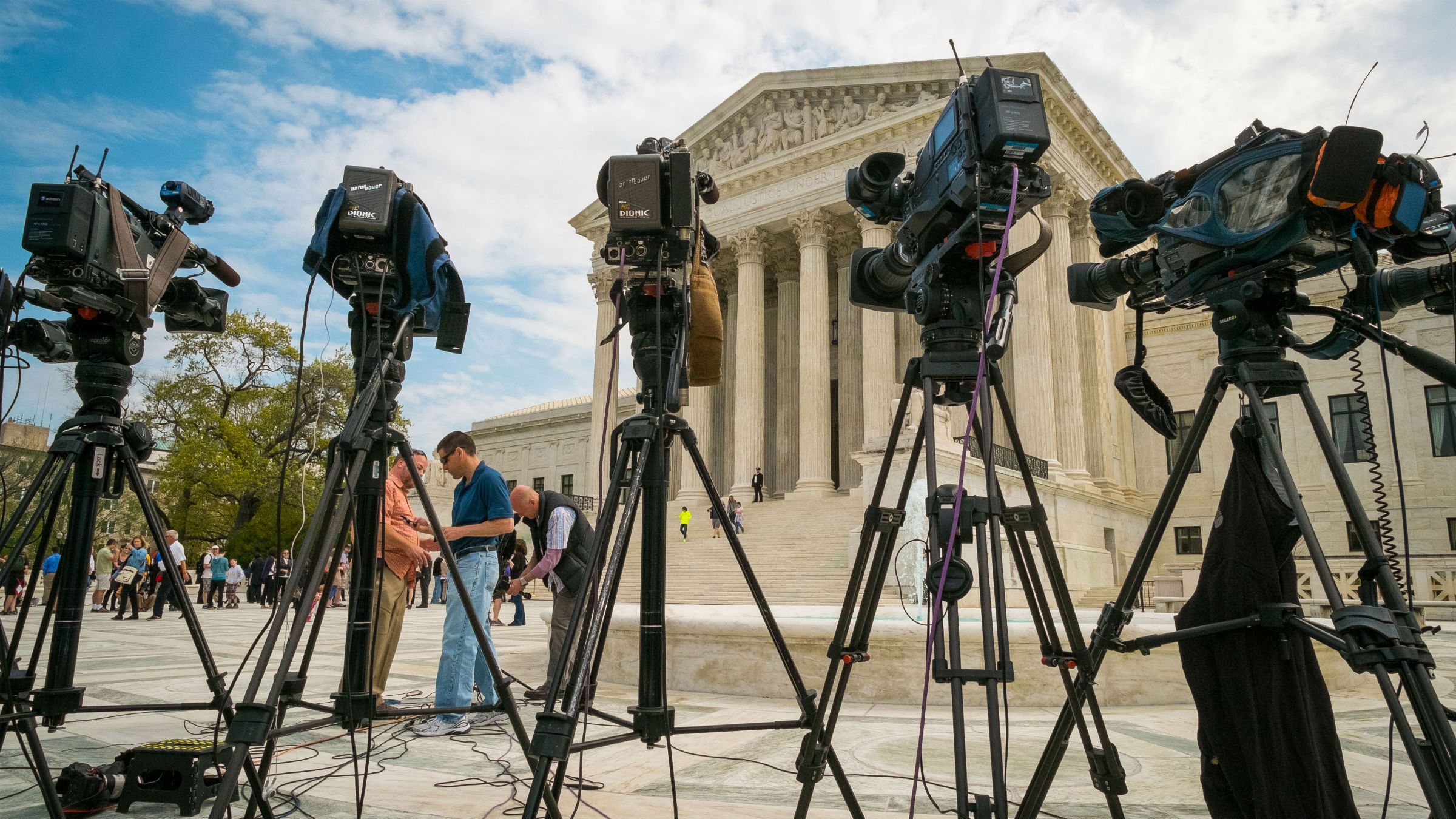To help the Supreme Court better understand the stakes of this critical case, Stop Predatory Gambling assembled a broad and diverse coalition to file an amicus brief demonstrating the law’s constitutionality and highlighting how state-sanctioned gambling has been a spectacular failure. The brief explains how state-sanctioned gambling uses unfair and deceptive marketing practices to target and prey on the financially desperate and the addicted; reduces opportunity for millions of American families to improve their economic standing; and forces even those citizens who rarely or never gamble to foot the bill for the enormous social costs and state budget problems it leaves behind.
October 2016
80% of Lottery Profits Come From 10% of the Players
According the New York Times: “States are also trying to bolster the number of ‘core’ players, according to interviews with lottery officials in several states. Such players typically represent only 10 percent to 15 percent of all players but account for 80 percent of sales, according to Independent Lottery Research, which does research and marketing for state lotteries.”
The Software and Design of Slot Machines
University of Waterloo (Canada) computer game design researcher Kevin Harrigan, whose research has made headlines around the world, recently testified before the New Hampshire Gambling Study Commission to explain the software and design features of slot machines. Through Canada’s Freedom of Information Act, Dr. Harrigan obtained slot machine design documents, called PAR Sheets. Slot machine manufacturers commissioned an army of lawyers but failed to block Dr. Harrigan’s access to this information. Without losses disguised as wins and frequent near win displays, slot machines would not be profitable.
Graphic of the Design and Technology Behind Slot Machines
Here is an excellent visual of the design and technology behind slot machines that accompanied a March 2009 Boston Globe news story on the topic titled “Glitzy video slots seen as a particular addiction risk.” (click on graphic to enlarge)
Government’s Predatory Gambling Program Surpasses the Predatory Subprime Lending Business
Prior to the massive crash of the highly-predatory subprime lending business which nearly every state Attorney General sued for their predatory practices, former Harrah’s top executive Rich Mirman boasted to Wall Street Journal reporter Christina Binkley: “I worked in the subprime lending industry. At least casinos are open about what they do.”
The infamous subprime lender Countrywide Mortgage made a lot of money and employed a lot of people by selling bad loans to citizens who could never afford to pay them back. Countrywide’s “success” was phony prosperity and it caused major damage to our economy which all of us are still paying for today. Presently, our state governments across the U.S. are full partners with corporate gambling operators whose business practices go far beyond failed subprime lenders like Countrywide.
Behind Electronic Gambling Machines
Drawing on research conducted in Las Vegas among game developers and gamblers, MIT Professor Natasha Schull provides an in-depth analysis behind the design and technology of electronic gambling machines.
National Report Concludes That Predatory Gambling Worsens Long-Term Budget Problems
A 2009 report by the Rockefeller Institute of Government at the State University of New York Albany concluded that predatory gambling worsens long term budgetary problems for states. Read the report below to see why states that institute predatory gambling as a means to stabilize the budget are deeply disappointed time and again:
“Income from casinos and lotteries does not tend to grow over time as rapidly as general tax revenue. Expenditures on education and other programs will generally grow more rapidly than gambling revenue over time. Thus, new gambling operations that are intended to pay for normal increases in general state spending add to, rather than ease, long-term budget imbalances.”
Why the Poor Play the Lottery Even More When Times Are Tough
Yale University’s Emily Haisley analyzed why poor people play the lottery even more when times are tough. Read this New York Times story about her report.
Citation: Carnegie Mellon University (2008, July 24). Why Play A Losing Game? Study Uncovers Why Low-income People Buy Lottery Tickets.
Lottery Advertising: The Pathology of Hope
Respected gambling researcher Robert Goodman has called lottery advertising “the pathology of hope” and state lotteries, because of their exemption from truth-in-advertising laws, fully exploit this pathology.
Most industries and companies are subject to truth-in-advertising laws enforced by the Federal Trade Commission. According to these laws, advertising must be truthful and non-deceptive, advertisers must have evidence to back up their claims, and advertisements cannot be unfair. Since 1974, the U.S. Congress has exempted state-run lotteries from these laws. Because of this, governments and lotteries have wide latitude in how they can promote their product, exaggerate chances of winning, and encourage more of our fellow citizens to lose their money instead of saving or investing. All federal laws relative to the lottery can be found in Title 18 of the U.S. Code, Sections 1301 to 1307. The final section, 1307, outlines the lottery’s exemption from truth-in-advertising laws.
These predatory and deceptive practices can be found in the media plans of the lotteries. Ohio’s Super Lotto media plan, for example, stated that lottery promotions should be timed to coincide with the receipt of government benefits, payroll and Social Security payments.
A Nation in Debt: How We Killed Thrift, Enthroned Loan Sharks and Undermined American Prosperity
This essay written by Barbara Dafoe Whitehead appeared in the July/August 2008 issue of The American Interest. It is excerpted and adapted from For a New Thrift: Confronting the Debt Culture, a report released in May 2008 by the Commission on Thrift. Whitehead exposes how anti-thrift institutions like state lotteries, casinos, payday lenders and credit card companies hinder the average American’s ability to save their earnings and get ahead financially. These institutions have been the main contributors to the growing amount of consumer debt accumulated in recent decades. Whitehead calls on the public to reform these institutions and to advocate for a culture based on saving and wealth-building.


